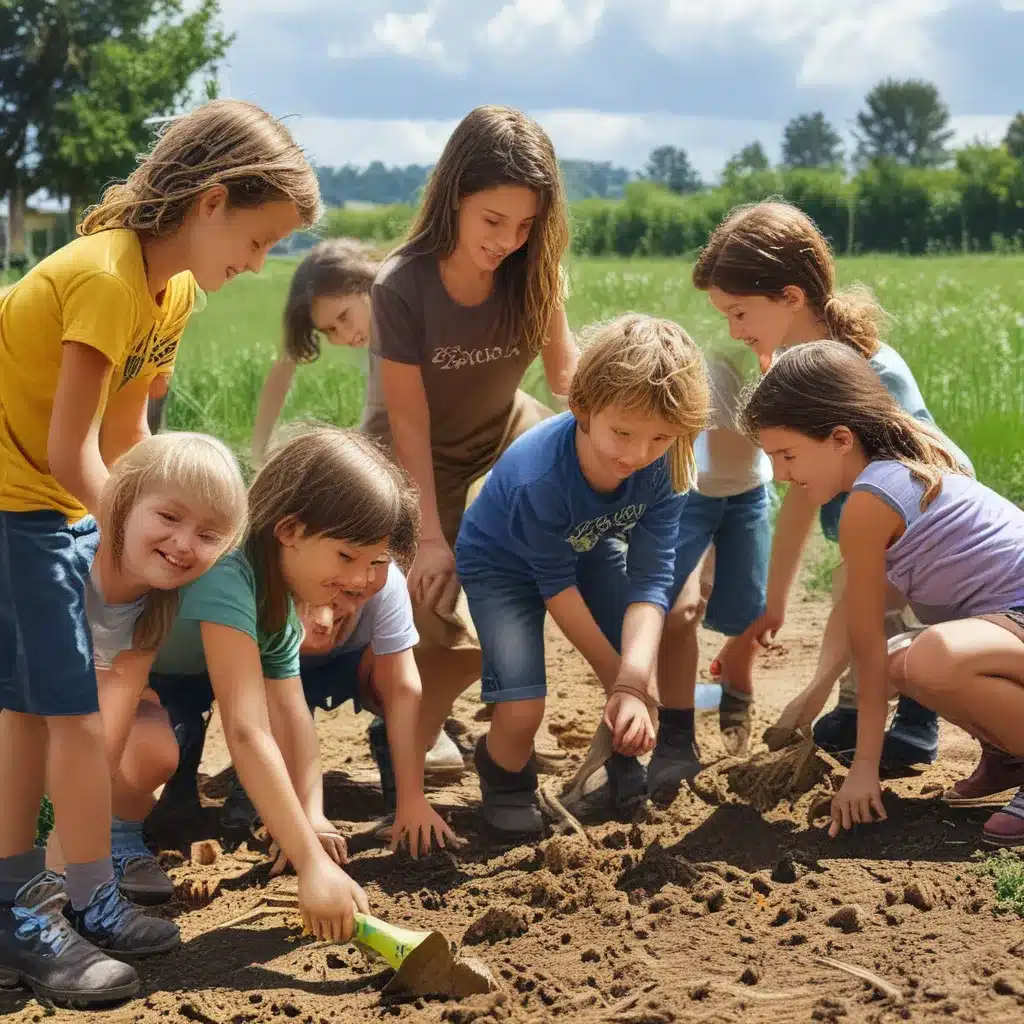
Cultivating Connection, Curiosity, and Self-Reliance
As a mildly neurotic (yet deeply caring) mom, I’ve made it my mission to give my kids a firsthand understanding of where their food comes from. And let me tell you, it hasn’t been an easy road – but it’s been an incredibly rewarding one.
You see, I just can’t help but wonder about the story behind that box of tropical fruit from Thailand at the big-box store. How much did the farmer who grew those mangoes make? What kind of chemicals were used to keep them ripe for the long journey? My inquisitive little ones, bless their hearts, usually respond with the most imaginative answers – “Spiderman flew them all the way here!” Ah, the innocence of youth.
But I persist, because it’s crucial to me that they grow up understanding the true cost and value of the things they consume. After all, food that travels thousands of miles to reach our plates doesn’t just impact the environment (hello, carbon emissions and resource waste), it often involves exploited labor as well. That’s why I much prefer supporting our local community-supported agriculture (CSA) service and visiting farmers markets whenever possible.
Hands-On Lessons in Sustainability
One of the most powerful ways I’ve found to connect my kids to their food is by getting them out in the garden. Whether we’re tending to the soil, sowing seeds, or harvesting the fruits (and veggies) of our labor, the experience is truly transformative. Sure, it’s hard work, and the harvest is nowhere near as bountiful as what we can find at the supermarket. But the lessons our kids learn are priceless.
Take, for example, the time we had that beautiful eggplant growing in our backyard. We waited patiently for it to ripen, only to discover the next morning that a nocturnal critter had beaten us to it, leaving just the remains on the ground. The disappointment was palpable, but it was also an opportunity to teach our kids about the delicate balance of our ecosystem and the importance of being vigilant stewards of the land.
And when we do manage to successfully grow something, the sense of pride and self-confidence it instills in our children is truly remarkable. Suddenly, they realize that they have the power to take care of themselves – that the land is abundant if we treat it with care. Not to mention the fact that the things we grow taste infinitely better than what we can find at the supermarket.
Fostering Empathy and Gratitude
But our garden adventures aren’t just about growing food – they’re also about cultivating empathy and gratitude. When my kids see the effort it takes to coax a single carrot from the earth, they develop a newfound appreciation for the work of the farmers who put that produce on our table. And by using the original names of the animals we eat, like “cows” and “pigs” instead of the more generic “beef” and “pork,” we’re reminding ourselves and our children that what’s on our plates was once a living, breathing creature.
It’s a quirky approach, I know, but our hope is that it will instill a sense of reverence and gratitude in our kids. Because let’s face it, it’s all too easy to disconnect from the true origins of our food when it’s neatly packaged and shipped in from who-knows-where. But by keeping that connection alive, we’re helping our children understand the sacrifices that others make to nourish us.
The Joys and Frustrations of Gardening
Of course, our garden adventures haven’t all been smooth sailing. We’ve had our fair share of setbacks, from squirrels feasting on our tomatoes to slugs devouring our lettuce. And let me tell you, the disappointment can be crushing, especially for little ones who have poured their hearts into tending to those plants.
But you know what? I’m grateful for those challenges. Because they’re a gentle way for my kids to learn that frustration is a part of life, and that’s okay. It’s how we cope with it that matters. And by working through those disappointments together, we’re building resilience, problem-solving skills, and a deep appreciation for the true unpredictability of nature.
Cultivating a Holistic Mindset
At the end of the day, our mission as parents goes far beyond just nutrition and gardening. It’s about cultivating a holistic understanding within our children – one that encompasses the environmental, ethical, and community-based implications of our food choices.
By engaging them in thought-provoking discussions about the impact of our food system, and encouraging them to ponder their place within it, I hope to raise humans who can help build a more sustainable, responsible, and nourishing future. Because let’s face it, the challenges we’re facing – from climate change to social inequity – are daunting. But if we can instill a sense of empowerment and agency in our kids, maybe, just maybe, they’ll be the ones to pave the way for a brighter tomorrow.
So, whether we’re battling a pesky groundhog or savoring the sweetest tomato we’ve ever tasted, my family’s journey in the garden is about so much more than just growing food. It’s about shaping the minds and hearts of the next generation – one dirt-covered hand and one delicious bite at a time.



